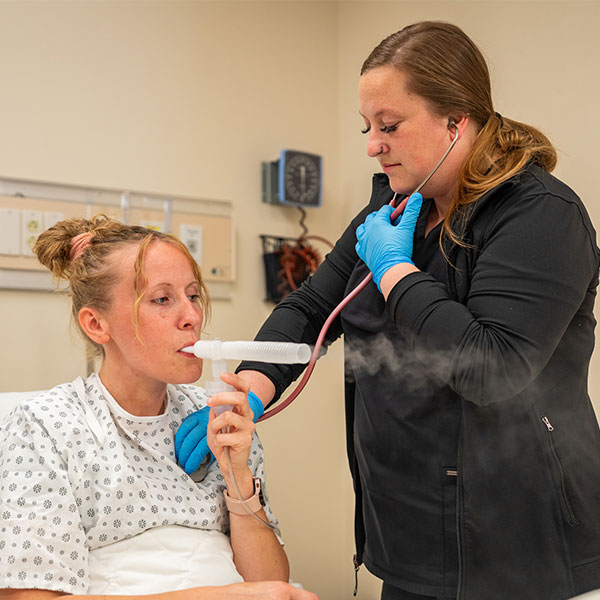Pathway To Canada For Pakistani Respiratory Therapist (RT)
A Pakistani Respiratory Therapist (RT) can be eligible to apply for provisional registration as well as for Full Registration in Alberta, but there’s a clear process to follow.
Which Diploma Or Degree Required to apply License:
In Canada, the standard educational requirement to become a Registered Respiratory Therapist (RRT) is generally a three-year college or university diploma/advanced diploma in Respiratory Therapy. Some programs may be longer (e.g., four years resulting in a Bachelor of Health Science with an RT focus), but the common accredited pathway is the three-year diploma. These programs are accredited by Accreditation Canada and include extensive clinical training.
Here’s how a Pakistani RT can generally apply for provisional registration in Alberta or any other states.
Provisional Registration: This is where provisional registration comes in. If you meet all other eligibility criteria (education, experience, language, good character) but have not yet passed the CBRC exam, you may be granted provisional registration.
What is Provisional Registration:
Under Supervision: A provisional registrant is allowed to practice under the direct supervision of a fully registered Respiratory Therapist (RRT) in Alberta.
Time Limit: Provisional registration is usually valid for a limited period (e.g., 18 months or a certain number of unsuccessful exam attempts), giving you time to pass the CBRC exam.
Key Steps and Requirements Towards
Provisional Registration:
Foreign Qualification Recognition (FQR) / Credential Assessment:
CARTA requires an assessment of your academic credentials. This often involves an evaluation by the International Qualifications Assessment Service (IQAS) or a similar recognized body. This determines if your Pakistani RT education is comparable to Canadian standards.
You’ll need to provide documents like your Respiratory Therapy diploma, certified transcripts, and potentially a resume detailing your professional development and work experience.
Work Experience:
You must demonstrate that you have sufficient relevant work experience. CARTA typically requires 1,500 practice hours of work within the previous four years. This must be verified by your previous employer(s).
English Language Proficiency:
You must prove your English language proficiency. CARTA generally requires successful completion of an approved English language test (e.g., IELTS.
Respiratory Therapist (RT).
Competency Assessment:
(The “Exams” Before the CBRC): If your initial credential evaluation shows that your education isn’t automatically equivalent to a Canadian-accredited program (which is often the case for IERTs), you will likely undergo a detailed competency assessment. This is designed to identify any gaps in your knowledge, skills, and judgment compared to the Canadian National
Competency Framework for Respiratory Therapists. This assessment can involve:
Educational Program Review: A detailed review of your curriculum and clinical placements to determine if specific areas of Canadian RT practice were covered. You might need to provide detailed course outlines and descriptions.
Behavioral Descriptive Interview: An interview where you’ll be asked to describe how you’ve handled various clinical scenarios, allowing assessors to gauge your practical knowledge and problem-solving skills against Canadian standards.
Clinical Skills Assessment (CSA): This is a practical, hands-on assessment, often in a simulated environment, where you demonstrate your clinical skills and critical thinking in various RT scenarios. This is a significant “exam” and may require travel to Canada.
How to get full Registration:
After Provisional registration which is usually valid for a limited period 18 months, you will be eligible to get full registration you will have to pass the following Exams.
Canadian Board for Respiratory Care (CBRC) National Examination:
The CBRC examination objectively and uniformly measures the essential knowledge, skills, and abilities required of entry-to-practice respiratory therapists in Canada. It ensures that graduates of accredited respiratory care education programs meet national standards for competency.
Examination Structure: The CBRC National Respiratory Therapy Examination consists of two parts:
Part One: Contains 100 to 120 multiple-choice questions (Type “A”). The allotted time for this section is two hours.
Part Two: Is a case study exam containing 140 to 160 multiple-choice questions (Type “A”). The allotted time for this section is four hours.
Jurisprudence Examination:
You will likely need to complete a jurisprudence examination or modules that assess your understanding of the laws, regulations, and ethical guidelines governing RT practice in Alberta.
Alternative Professions
1.Medical Lab Assistant/Technician
2.Cardiopulmonary 3.Technologist/Technician
4.Patient Care Assistant (PCA) / Health Care Aide (HCA)
5.Medical Office 6.Assistant/Administrator
7.Rehabilitation Assistant
Overall Averages in Canada:
- Average Annual Salary: Around CAD $86,229 per year or CAD $44.22 per hour.
- Entry-level: Typically starts around CAD $45,000 to CAD $60,000 per year.
- Experienced: Can go up to CAD $102,111 per year or more.
- Average Hourly Pay: Around CAD $39.31 in 2025 (Payscale).
CONTACT
MAHMOOD SALEEM
Advocate High Court
Immigration Consultant
Call 0321-4314001
WhatsApp 0333-5769655
